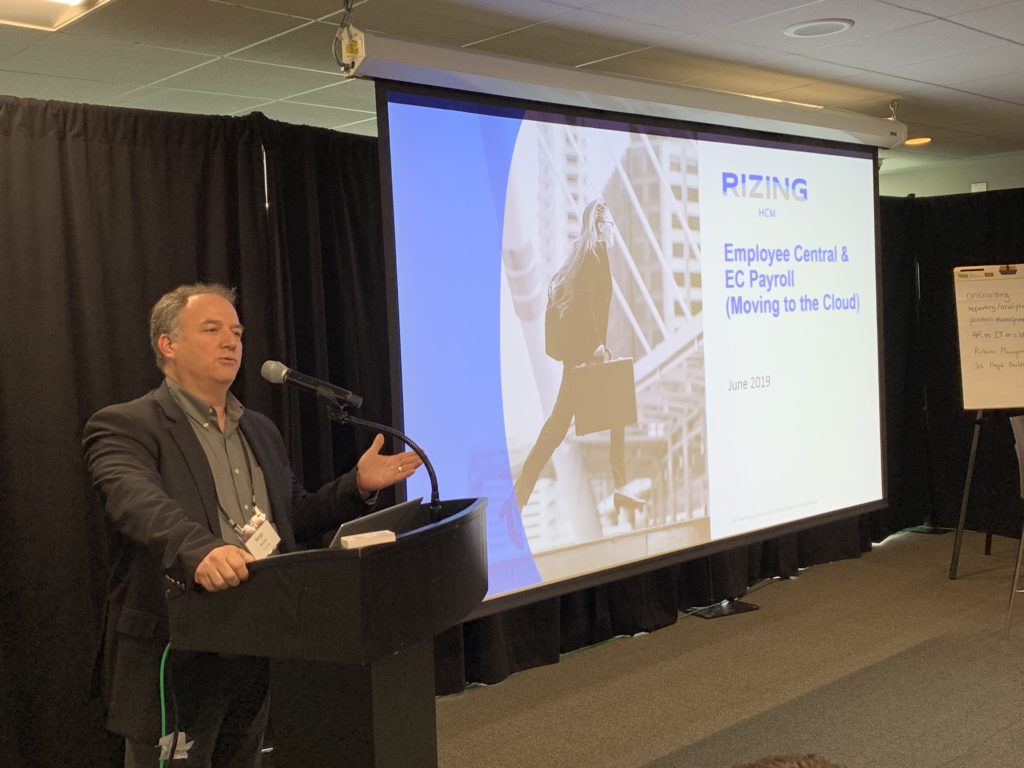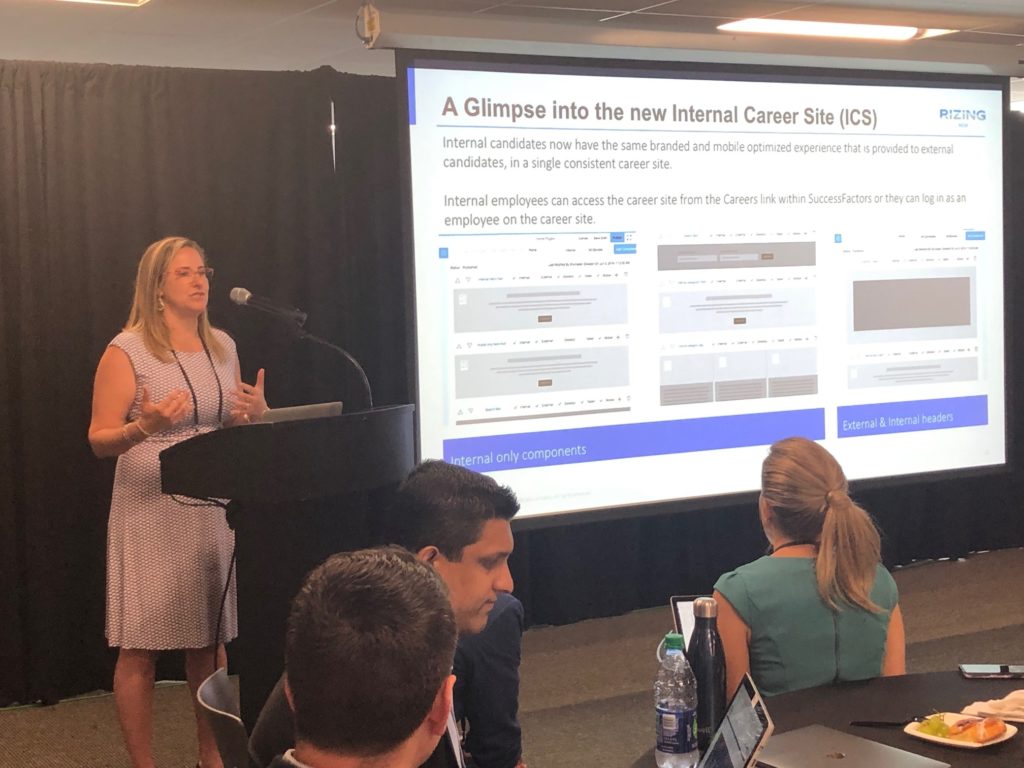You are not alone in the SAP SuccessFactors ecosystem—there are many SAP SuccessFactors user groups and communities out there. These collectives of SAP customers and partners provide a wealth of knowledge, networking, and inspiration. For SAP SuccessFactors there are multiple options, and each provides value. I am here to help you navigate those options and maximize your user group experience.
I’ve been involved in SAP SuccessFactors communities on many levels—as a customer and ASUG (Americas’ SAP User Group) board member, as a community builder while working for ASUG, as a blogger, and now as an SAP partner. By tapping into my experience, as well as my Rizing coworkers, we’ve created this guide on how to find and best utilize SAP SuccessFactors communities and user groups.
User Groups and Communities Connect You Personally with SAP SuccessFactors Customers and Partners
If you ask most people that are active in their technology user groups, they will tell you the relationships and connections have often been the most valuable aspect of the endeavor. SAP SuccessFactors user groups offer the chance to meet with those that have had or are currently experiencing the same thing as you—from the point of looking for the right tool to implementing and utilizing that tool, and everything else in between.
The question you have or challenge you are facing has likely been answered or faced by someone else. Online communities offer an easy way to pose that question, and in-person events allow you to make direct connections with those that have similar experiences. You might even see two people at rival companies sharing tips because those in the same industry often provide the most useful advice.
SAP SuccessFactors User Groups and Communities Provide a Wealth of Knowledge
From webcasts and discussion forums to live presentations at local and national events, there is a wealth of knowledge that SAP SuccessFactors user groups offer. There are resources on current and upcoming product innovations, customer stories and use cases, along with leading practices for optimizing your organization’s investment and your employees’ daily work.
With all the networking and learning opportunities available, it’s an excellent idea for you and your organization to get involved in one or more user groups and communities. Here are some tips on how to do that:
- FIND your local user group –
- For SAP SuccessFactors user groups, visit the list of groups on the SAP SuccessFactors Community page.
- For general SAP user groups, go to SAP’s user group finder tool.
- JOIN the community where you live and work.
-
- SuccessFactors: Create a profile in the SAP SuccessFactors online community using your partner user ID;
- SAP provides customer meetings and webinars, and groups are organized around topics and/or locations. If you don’t see one for your area, you can start one.
- Membership is free for customers and partners.
- Participate in the SAP SuccessFactors community online and keep an eye out for local events.
- SuccessFactors: Create a profile in the SAP SuccessFactors online community using your partner user ID;
-
- ASUG.com: For North American customers and partners, you can create a profile with your work email address.
- Membership for all employees is covered under a corporate membership—by entering your e-mail you’ll find out whether your company is a member.
- You can participate online with Special Interest Groups (SIGs) for your industry, function, and SAP SuccessFactors, as well as face-to-face at local and national events with ASUG.
- Other global user groups – There are general SAP user groups for all areas of the globe. For example, DSAG covers German-speaking countries, while UKISUG covers the UK and Ireland. Again, you can find your region’s SAP user group with the user group finder tool.
- ASUG.com: For North American customers and partners, you can create a profile with your work email address.
- BE ACTIVE
- Blog if you have something to share—you might even become a thought leader in your industry or profession.
- Follow discussion forums – ask questions, answer questions. You’ll often get as much out of these forums as you give.
- Attend events in your local area, look at national events such as SuccessConnect, SAPPHIRE NOW + ASUG Annual Conference, and industry-specific shows. If you are willing to share your story and speak, you may be able to get free admission to the larger conferences—local events are often included with user group memberships.
Other SAP SuccessFactors Resources
Beyond SAP SuccessFactors user groups, there are other online and in-person resources where knowledge sharing and networking can happen. For example, SAPinsider provides research, webcasts, Q&As, and in-person events with customers, partners, and thought leaders.
LinkedIn also has many groups that are focused on sharing SAP SuccessFactors and HR knowledge:
- SuccessFactors – Global Community 6,493 members
- LinkedIn: HR (#1 Human Resources Group) 967,884 members
- HR EMEA: Europe | Middle East | Africa 5,957 members
- HR SAP 17,952 members
- Global SuccessFactors and SAP Community 24,783 members
- Global SAP and SuccessFactors Community 15,799 members
- HR GUG 236 members (vocal in SAP EU)
- SAP Learning Solution Community 1,177 members
Optimizing Your SAP SuccessFactors Experience
There are plenty of benefits to joining an SAP SuccessFactors user group or online community. There are also plenty of options. If you are someone that thrives in an online discussion, that can be found from SAP, user groups, and LinkedIn. If you prefer an in-person touch, there are local, national, and international events that will provide opportunities to build community.
Just remember you aren’t alone in this SAP SuccessFactors journey. Someone else has been there and they probably have advice for you on how to best handle anything from the discovery to adoption phase and beyond.
At Rizing, we are involved in many of these communities, and we like to provide resources via our HCM blog, the Rizing HCM LinkedIn page, and even HCM-focused white papers. Follow along with us as we contribute to and participate in SAP SuccessFactors user groups and communities on local, regional, national, and global levels.





